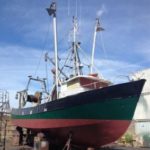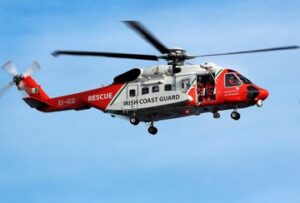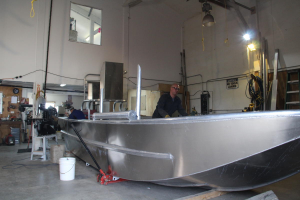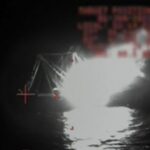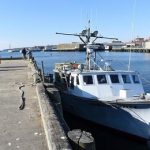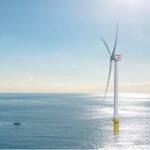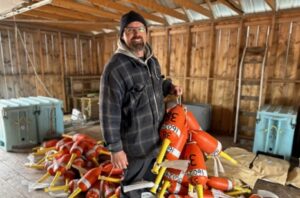Daily Archives: December 20, 2012
A very good year at Coastal Villages Region Fund – Deckboss
Eye-opening compensation levels at some of Alaska’s six Community Development Quota companies are old news. But still interesting. The example cited most often is that of Morgen Crow, executive director at Coastal Villages Region Fund. He made $475,000 in 2011, according to the company’s latest annual report. Read More
Kodiak shipyard losing money, higher rates likely
KODIAK, Alaska — Higher rates appear likely for users of Kodiak’s city-owned shipyard because it continues to lose money. The 3-year-old shipyard lost more than $300,000 in the last fiscal year, and now the Kodiak Port and Harbor Advisory Board has agreed that rate increases are needed to balance the books, the Kodiak Daily Mirror reported Wednesday. Kodiak’s shipyard is considered a do-it-yourself operation where the city provides space for ship owners to work on their boats using contractors based in the city. Read More
Red snapper policies to be discussed at meeting
CORPUS CHRISTI —According to federal fisheries managers we caught 1.6 million pounds more in gulf red snapper than we were allowed to this past season. This estimated overharvest along with the consequences will be discussed during an upcoming Florida meeting of the Reef Fish Management Committee of the Gulf of Mexico Fisheries Management Council. Usually I don’t report on the goings on with such committees because what they discuss is premature. Read More
The Wreckage of the Deepwater Horizon is Emitting a Mysterious Substance Into the Gulf of Mexico
But, hey, maybe it’s a coincidence. What could be causing oil slicks around an abandoned, decaying exploded oil rig? Could be anything. The Gulf’s three-eyed fish must be loving their new permanent neighbor. Read More
During the NEFMC meeting, Bill Karp appologized for the treatment of renowned scientist Doug Butterworth. What’s the buzz?
Who is Doug Butterworth?
Science for Hire: What Industry’s Deep Pockets Are Doing to Our Fisheries The Public Trust Project
It’s sunset in Woods Hole, Massachusetts, a time when the little town’s handful of shops board up for the night, and the lights click off at no fewer than six marine research institutes. But at the far end of the town, one block from the churning Atlantic, 10 weary scientists sit around a big square table arguing about cod. They’ve been at it since 8 a.m.. Each has blocked two weeks in his or her calendar for this single purpose. Read more
The Bottom Line: Don’t Remove Protection When Cod Need It Most.
New England is famous for cod fishing. But the industry is ailing—and the cure being proposed might be worse than the disease. Three months ago, the U.S. Commerce Department declared a “commercial fisheries disaster” off the coast of New England because populations of groundfish—cod, haddock, and flounder, among others—were still struggling to recover. More trash here.
Allison McHale – NOAA Federal – commercial summer flounder fishery in the New Jersey will be closed effective December 22nd, re-open on January 1st
NOAA announces today that the commercial summer flounder fishery in the New Jersey will be closed effective December 22nd since the state’s quota for this fishery has been reached. This closure has been closely coordinated with the State of New Jersey. The fishery is scheduled to re-open on January 1st. For a copy of the Fishery Bulletin announcing this closure, click here.
Your View: Fishery council must reject unreliable assessments – By Richard Canastra – southcoasttoday
I nearly always attend New England Fishery Management Council meetings in person, but last month, I was unable to attend the meeting in Newport, and instead listened to the proceedings online. I found that listening, and not physically being there, gives you a different perspective on a meeting. You hear more intently. There are fewer distractions. Examples seem clearer. Patterns emerge. There are some predictable patterns in life. When there is an accident, at the end of the traffic jam you find a police officer. When you go to a restaurant, at the end of dinner the bill comes. And when you attend a fisheries management council meeting that is dealing with a crisis, there is usually a bad stock assessment.
Bad stock assessments have become as predictable as the sunrise. Read More
Share and Share Alike
As a citizen advocate of the fishing industry, I have no confidence in NOAA stock assessments.
I spend a lot of time reviewing material, attempting to convey the results to as many people possible.
These listening sessions allow, as Mr Canastra stated, patterns to emerge.
The patter of Bill Karp, and Sam Rauch deviates not from the typical bureaucratic structure, much to my disappointment after listening to them from various venues, and reading a lot of information.
The revelations of the Georges Bank Yellowtail Flounder Working Group Meeting May 23, 2012, are the foundation of my opinion to condemn the stock assessments as a tool for fishery management, while enforcing Mr Canastras belief that the proper equipment is not being utilized to sample yellow tail flounder abundance.
As stated, patterns have emerged. The pattern of over looking details that have detrimental affects on stock assessments and confidence in them.
At the The New England Fishery Management Council’s three-day meeting in Plymouth Ma on 9/25/2012, a major detail confirmed the retrospective patter of no confidence in stock assessments conducted by NOAA.
During the 54th Stock Assessment Workshop (SAW)/Stock Assessment Review Committee (SARC) Meetings, a fisherman asked a question that received a hollow shrug of the shoulders answer that I find alarming, and telling that these assessments are substandard and incomplete.
The question was, “why is there no mention of herring as a predator species” in the ground fish assessment?
The answer. ” The SSC was, ah, not presented, ah, ah herring as a, ah, predator species….”
Yes. A Retrospective Pattern of the science used to mismanage this industry is established.
No confidence.
Thursday, December 20, 2012 NEFMC Council Meeting Webinar Registration Listen Live Sign Up Webinar Registration
New England Fishery Management
Council Meeting, will hold a one day Council Meeting at the Sheraton Colonial,
One Audubon Road, Wakefield, MA
Get your link https://www4.gotomeeting.com/register/204704735
NOAA region chief Bullard hedges on interim limits
The coalition theory was based on an interpretation of the Magnuson-Stevens Act for building a second year of relief — “reducing” rather than “ending” overfishing — while a plan to bring the stock to maximum sustainable yield is crafted.,“I’m not going to opine on whether you can squeeze another year out of (the Magnuson regulations),” Bullard said in a Thursday interview at the Times. “We’re willing to take a look at this at the meeting.” Read More


































